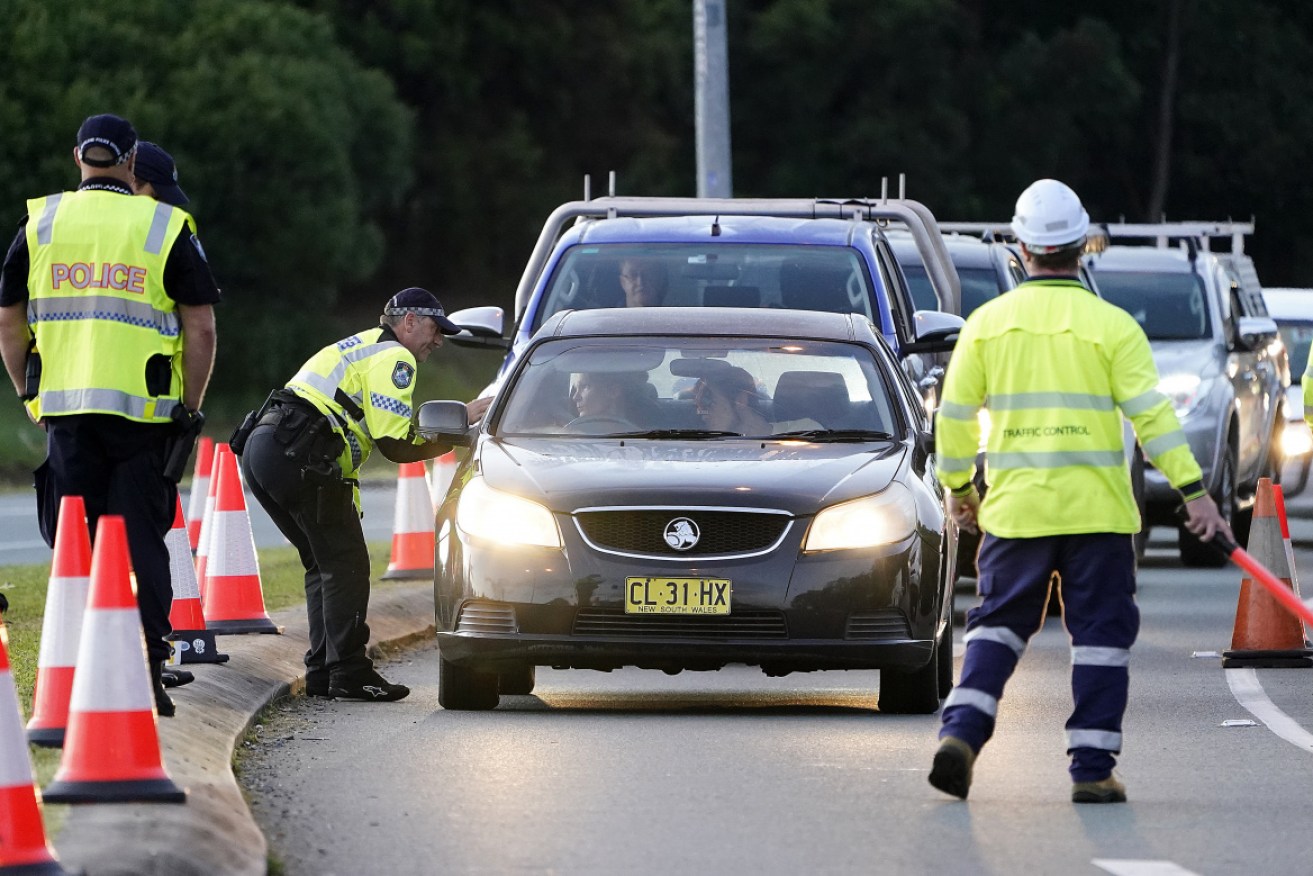Queensland rolls out the barriers to unauthorised arrivals


Queensland has again stepped up controls at its border with NSW. Photo: AAP
Water barriers have been rolled out at checkpoints in Queensland as the state closes its borders to anyone who is not a resident or among a handful of exemptions.
From early on Friday, unauthorised travellers who try to enter Queensland by road, air or sea are being turned around at their own expense.
The Queensland/NSW border has been closed for a week but travel restrictions to limit coronavirus importations stepped up a gear on Friday.
Returning Queenslanders are being let in, along with freight services.
Anyone else must hold a government permit that proves they are travelling for essential reasons, such as work or medical appointments.
“These strict measures are about safe guarding Queensland and minimising the spread of the virus,” Chief Superintendent Mark Wheeler said.
“Community members should avoid all non-essential cross border travel.”
Water barriers and checkpoints have particularly been stepped up at Coolangatta, the Gold Coast’s southernmost suburb.
Tweet from @MarkHanrahan9
There’s also an increased police presence at Brisbane airport.
Non-residents without entry permits can no longer leave the airport. Instead, they will be returned to their point of origin on the next available flight.
Australia has more than 5100 coronavirus cases, including 24 deaths.
Queensland’s tally stands at 835 cases, and four Queenslanders have died.
Premier Annastacia Palaszczuk has warned of a tough six months ahead, as Queenslanders deal with rules that urge them to stay at home unless it’s truly necessary.
The state is also closing most national parks, walking tracks and 4WD areas.
The parks will be closed to the public, along with hiking tracks, picnic areas, camping areas, swimming holes and lookouts from Friday.
On the other side of the country, Western Australia will bring in even tougher controls on Sunday.
Premier Mark McGowan said a temporary hard border closure will come into effect from midnight on Sunday. Even residents who are caught on the other side of the border will not be allowed to return to WA.
“Some might think it’s over the top and unnecessary. I can assure them that it’s not,” Mr McGowan said.
“Our isolation is now our best defence. We need to use it to the best of our advantage.”
There will be exemptions for health workers, emergency services, freight workers, people providing specialist skills, judicial services and on compassionate grounds.
FIFO workers and their families will also be exempt but must adhere to a 14-day isolation period upon entering WA.
The Northern Territory and Tasmania have also closed their borders to all but residents and certain exemptions.
-with AAP








